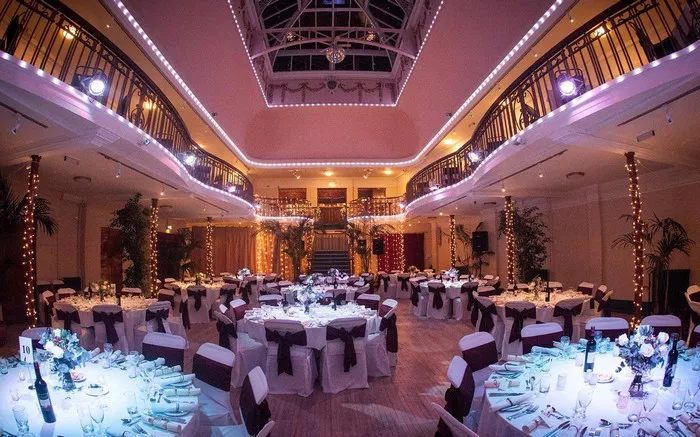The wedding planning industry is undergoing a technological revolution as artificial intelligence (AI), virtual reality (VR), and blockchain solutions reshape how couples plan their big day. A report from the Global Wedding Tech Market reveals that 68% of engaged couples now use AI-powered tools for wedding planning, marking a dramatic shift from traditional planners and spreadsheets.
AI Wedding Planners Take Center Stage
Startups like Lovely AI and BridalBot have introduced virtual assistants that handle everything from vendor negotiations to seating arrangements. These platforms analyze thousands of data points—from weather forecasts to guest dietary restrictions—to optimize wedding logistics.
Personalized Vendor Matching: AI algorithms now recommend photographers, florists, and caterers based on a couple’s budget, style, and past reviews.
Real-Time Budget Tracking: Apps like NuptialPay use predictive analytics to alert couples if they’re overspending on flowers or exceeding venue capacity.
AI-Generated Vows: Some services, such as VowForYou, craft custom wedding vows by analyzing a couple’s love story and communication style.
Virtual Reality Venue Tours and Holographic Guests
With rising travel costs, VR venue tours have surged in popularity. Couples can now explore wedding locations in photorealistic 3D before booking. Luxury resorts and historic estates are partnering with tech firms to offer immersive digital walkthroughs, complete with simulated lighting and décor options.
Even more futuristic? Holographic guest technology, allowing absent loved ones to “attend” weddings via lifelike projections. Companies like Presence have developed AI-driven holograms that interact in real-time, making destination weddings more inclusive.
Blockchain for Secure Wedding Contracts
To combat scams and last-minute cancellations, blockchain-based smart contracts are gaining traction. Platforms such as WedChain ensure vendors receive payments only when services are delivered as promised, reducing fraud risks. Some couples are even using NFT wedding invitations for VIP guests, offering exclusive perks like digital collectibles.
The Downsides: Over-Reliance on Tech?
While digital tools streamline planning, some critics warn of “automation overload.” A 2024 survey by Modern Bride found that 42% of couples feel overwhelmed by endless app notifications and algorithm-driven decisions. Traditional planners argue that human intuition and creativity still outperform AI in crafting personalized experiences.
What’s Next?
Industry experts predict that by 2026, AI-driven weddings will become the norm, with advancements in:
Augmented Reality (AR) Dress Fittings – Brides can “try on” gowns via smartphone cameras.
Voice-Activated Wedding Assistants – Think Alexa, but for managing RSVPs and song requests.
Emotion-Sensing AI – Algorithms that adjust music and lighting based on crowd mood.
Final Advice for Tech-Savvy Couples
Balance tech with human touch – Use AI for logistics but rely on planners for creative vision.
Test VR venues early – Ensure the digital experience matches reality.
Secure contracts wisely – Blockchain can prevent vendor disputes.
As weddings become increasingly digital, one thing remains timeless: the desire for a celebration that feels uniquely personal. The challenge? Harnessing technology without losing the magic of human connection.


